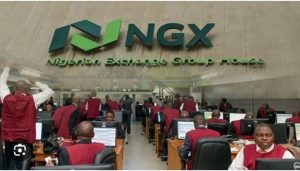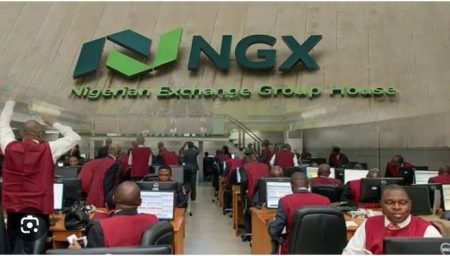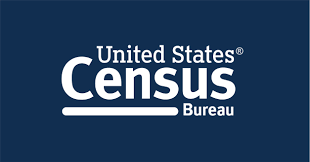The Nigerian Ports Authority (NPA) has set an ambitious revenue target of ₦1.28 trillion for the 2025 fiscal year, a significant increase from the ₦894.86 billion realized in 2024. This projection, presented by NPA Managing Director Abubakar Dantsoho during the 2025 budget defense session before the House of Representatives Committee on Ports and Harbours, reflects the agency’s commitment to modernizing port infrastructure, leveraging advanced technology, and capitalizing on anticipated growth in maritime activity. The projected revenue increase is driven by several key factors, including the expected full operation of the Dangote Refinery and its Single Point Mooring system, the operationalization of upgraded terminals like the West Africa Container Terminal and the Onne Multipurpose Terminal, and the implementation of advanced digital systems such as the Port Community System, National Single Window, and Vessel Traffic Management System. These initiatives aim to enhance efficiency, transparency, and security within the Nigerian port ecosystem.
Dantsoho highlighted that over 70% of the proposed 2025 expenditure will be allocated to capital-intensive projects, demonstrating the NPA’s focus on long-term infrastructure development. While the NPA surpassed its revenue target in 2024, achieving ₦894.86 billion against a target of ₦865.39 billion, it experienced underutilization of its expenditure budget, spending only ₦417.86 billion out of a planned ₦850.92 billion. Despite this, the NPA significantly increased its contribution to the Consolidated Revenue Fund, remitting ₦400.8 billion, almost double the ₦213.23 billion contributed in 2023. Dantsoho emphasized that this substantial contribution, with ₦344.7 billion deducted directly at source, underscores the NPA’s commitment to national revenue generation even when it impacts the agency’s cash flow.
The ₦1.28 trillion revenue target for 2025 is based on a detailed breakdown encompassing various revenue streams. Ship dues are projected to contribute ₦544.06 billion, cargo dues ₦413.06 billion, concession fees ₦249.69 billion, and administrative revenue ₦73.07 billion. These projections reflect anticipated growth in maritime activity and the implementation of new revenue-generating initiatives. The NPA’s proposed total expenditure for 2025 is ₦1.14 trillion, with ₦778.46 billion earmarked for capital development projects. This investment aims to enhance the competitiveness of Nigerian ports against regional and global rivals and addresses the increasing pressure from better-equipped ports in neighboring countries.
Dantsoho emphasized the importance of investing in both infrastructure and technology to maintain competitiveness in the global maritime landscape. He outlined plans to upgrade outdated systems and strengthen cybersecurity infrastructure within Nigerian ports, aligning them with international digital standards. The NPA believes that with timely access to internally generated funds, it can achieve tangible results that meet national expectations and contribute significantly to economic growth and development. The Managing Director stressed the critical role of ports in facilitating trade, creating jobs, and bolstering economic resilience.
Responding to the NPA’s presentation, Nnolim Nnaji, Chairman of the House Committee on Ports and Harbours, commended the agency’s performance and encouraged continued focus on infrastructure development and revenue growth. He acknowledged the significance of ports as the lifeline of the national economy and emphasized the need to prioritize the upgrade of legacy ports, particularly along the Eastern and Western corridors, to ensure long-term viability and competitiveness. Nnaji’s remarks reflect the importance of a balanced approach to port development, recognizing the need to invest in both new and existing facilities to maximize their contribution to the nation’s economic well-being.
The ambitious revenue target set by the NPA for 2025 reflects a strategic vision for the future of Nigerian ports. The agency aims to leverage increased maritime activity, driven by factors such as the Dangote Refinery operations and evolving global trade patterns, to boost revenue generation and fund crucial infrastructure upgrades. The NPA’s commitment to modernizing its operations through the adoption of advanced technologies and the strengthening of cybersecurity infrastructure positions Nigerian ports to compete effectively on the global stage. By investing in both new and existing port facilities, the NPA aims to create a robust and resilient maritime sector that contributes significantly to Nigeria’s economic growth and prosperity. The close collaboration between the NPA and the House Committee on Ports and Harbours underscores the shared commitment to realizing the full potential of Nigeria’s maritime sector.














